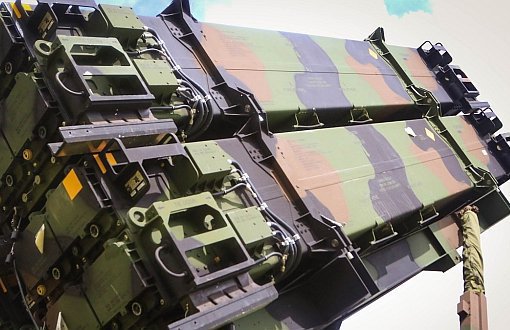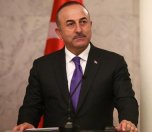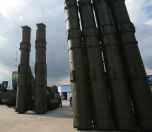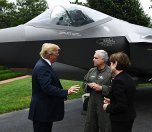* Photograph: US Army / Defense News
Click to read the article in Turkish / Kurdish
The US State Department has cleared Turkey for the purchase of Patriot surface-to-air missiles. According to the announcement that has been made by the Defense Security Cooperation Agency, the deal covers the procurement of 80 GEM-T and 60 PAC-3 missiles.
Pentagon notified the Congress on the certification of sale. The US government has to have the approval of the Senate in order to finalize the three and a half billion dollar deal.
"Trump admin wants better relations with Turkey'
The Bloomberg said, "Trump administration officials seeking better relations with Turkey were stymied by a disagreement that threatened to turn into a crisis" in their story on the event.
President and Justice and Development Party (AKP) Chair said there were no changes to the plans to buy S-400 missiles from Russia, in a joint press conference with Vladimir Putin last April.
The Bloomberg also pointed that Turkey is a crucial partner in the US-led program to build the F-35 fighter jet, with 10 Turkish companies set to produce about $12 billion in parts.
Extradition of Gülen: Trump will 'take a look at it'
White House Spokesperson Sarah Sanders yesterday (December 18) was asked a question about the extradition of Fethullah Gülen, whom Turkey accuses of plotting the coup attempt in 2016. Sanders replied,
"The only thing he (Trump) said is that he will take a look at it. For now, there is nothing beyond that. Not any commitments have been made regarding the process."
Minister of Foreign Affairs Mevlüt Çavuşoğlu said on December 16 that US President Donald Trump told President Erdoğan at the G20 Summit that they are working on the extradition of Gülen.
Turkey's Patriot and S-400 dilemmaThe US and Netherlands sent two Patriot batteries each to the province of Adana and Germany sent two Patriot batteries to the province of Maraş. But these batteries were withdrawn in 2015 because of renovation works. At the time, Turkey announced that it began an operation against the PKK (Kurdistan Workers Party) and the ISIS. During the diplomatic crises with Germany and Netherlands which took place last year, the topic of "the dependency on foreign countries in defense" was widely discussed in Turkey. Turkey began to take its first steps towards ending its dependency in 2013. In September 2013, Ankara decided to cooperate with China to produce a new air defense system. But it did not continue. NATO opposed to this attempt to make an agreement at the time. Turkey justifies its desire to have an air defense system by pointing out the missiles Iran and Syria have. Syria has Scud-D missiles with a range of 700 km in its inventory. Iran on the other hand, has Qiam-1 (750 km), Shahab-3 (1.300 km), Sejil-2 (2.000 km) missiles in its inventory. Turkey's own HİSAR air defense system, which is produced by the state-owned Aselsan, has a short range of 16 km and mid-range of 40 km. Long range spec of the HİSAR is still at the development stage. While Turkey agreed with Russia to purchase S-400 systems, the US and the NATO repeatedly opposed to the deal. |
(PT/VK)
* Source: Defense News, Bloomberg









